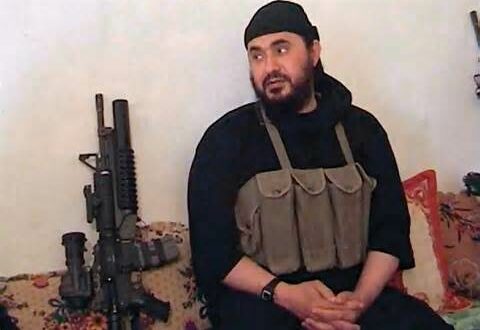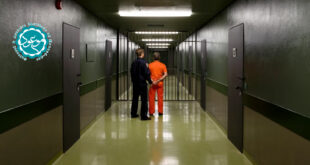History of Al Zarqawi

The first time Abu Musab Al-Zarqawi’s name is mentioned was in relation to the thwarted attack on the Radisson SAS Hotel in Amman, Jordan, during the millennium celebrations (December 1999). According to press reports, he had previously gone under another name: Ahmed Fadil Al-Khalayleh, (apparently among other aliases).
According to the New York Times, Al Zarqawi fled Afghanistan to Iran in late 2001, following the entry of US troops. Official US reports suggest that he was protected at the highest levels of the Tehran government.
“United States intelligence officials say they are increasingly concerned by the mounting evidence of Tehran’s renewed interest in terrorism [and support to Al Zarqawi], including covert surveillance by Iranian agents of possible American targets abroad. American officials said Iran appeared to view terrorism as deterrent against possible attack by the United States.
Since the surprise election of reformer Mohammad Khatami as president of Iran in 1997 and his wide public support, Washington has been counting on a new moderate political majority to emerge. But the hard-line faction has maintained its grip on Iran’s security apparatus, frustrating American efforts to ease tensions with Tehran.
Now, Iranian actions to destabilize the new interim government in Afghanistan, its willingness to assist Al Qaeda members and its fueling of the Palestinian uprising are prompting a reassessment in Washington, officials say.” (NYT, 24 March 2002)
In 2002, his presence in Tehran, allegedly “collaborating with hardliners” in the Iranian military and intelligence apparatus, is part of an evolving disinformation campaign which consists in presenting Iran as a sponsor of the “Islamic terror network”:
In February 2002, he was allegedly involved in planning terror attacks inside Israel.
Colin Powell’s Address to the UN Security Council
In the months leading up to the war on Iraq, Al Zarqawi’s name reemerges, this time almost on daily basis, with reports focusing on his sinister relationship to Saddam Hussein.
A major turning point in the propaganda campaign occurs on February 5, 2003. Al-Zarqawi was in the spot light following Colin Powell’s flopped WMD report to the UN Security Council. Powell’s speech presented “documentation” on the ties between Saddam Hussein and Al Qaeda, while focusing on the central role of Al-Zarqawi: (emphasis added):
Our concern is not just about these illicit weapons; it’s the way that these illicit weapons can be connected to terrorists and terrorist organizations…
But what I want to bring to your attention today is the potentially much more sinister nexus between Iraq and the Al Qaeda terrorist network, a nexus that combines classic terrorist organizations and modern methods of murder. Iraq today harbors a deadly terrorist network, headed by Abu Musaab al-Zarqawi, an associate and collaborator of Osama bin Laden and his Al Qaeda lieutenants.
Zarqawi, a Palestinian born in Jordan, fought in the Afghan War more than a decade ago. Returning to Afghanistan in 2000, he oversaw a terrorist training camp. One of his specialties and one of the specialties of this camp is poisons.
When our coalition ousted the Taliban, the Zarqawi network helped establish another poison and explosive training center camp, and this camp is located in Northeastern Iraq. You see a picture of this camp. Graphic, above. [there were no WMDS at this camp according to ABC report, see below]The network is teaching its operative how to produce ricin and other poisons. Let me remind you how ricin works. Less than a pinch — imagine a pinch of salt — less than a pinch of ricin, eating just this amount in your food would cause shock, followed by circulatory failure. Death comes within 72 hours and there is no antidote. There is no cure. It is fatal.
Those helping to run this camp are Zarqawi lieutenants operating in northern Kurdish areas outside Saddam Hussein’s controlled Iraq, but Baghdad has an agent in the most senior levels of the radical organization Ansar al-Islam, that controls this corner of Iraq. In 2000, this agent offered Al Qaeda safe haven in the region. After we swept Al Qaeda from Afghanistan, some of its members accepted this safe haven. They remain there today.
….
We know these affiliates are connected to Zarqawi because they remain, even today, in regular contact with his direct subordinates, including the poison cell plotters. And they are involved in moving more than money and materiel. Last year, two suspected Al Qaeda operatives were arrested crossing from Iraq into Saudi Arabia. They were linked to associates of the Baghdad cell, and one of them received training in Afghanistan on how to use cyanide.
From his terrorist network in Iraq, Zarqawi can direct his network in the Middle East and beyond. [Note he is present in several countries at the same time]….
According to detainees, Abu Atiya, who graduated from Zarqawi’s terrorist camp in Afghanistan, tasked at least nine North African extremists in 2001 to travel to Europe to conduct poison and explosive attacks. Since last year, members of this network have been apprehended in France, Britain, Spain and Italy. By our last count, 116 operatives connected to this global web have been arrested. The chart you are seeing shows the network in Europe.
We know about this European network, and we know about its links to Zarqawi, because the detainee who provided the information about the targets also provided the names of members of the network.
…
We also know that Zarqawi’s colleagues have been active in the Pankisi Gorge, Georgia, and in Chechnya, Russia. The plotting to which they are linked is not mere chatter. Members of Zarqawi’s network say their goal was to kill Russians with toxins.
We are not surprised that Iraq is harboring Zarqawi and his subordinates. This understanding builds on decades-long experience with respect to ties between Iraq and al Qaeda.
….
As I said at the outset, none of this should come as a surprise to any of us. Terrorism has been a tool used by Saddam for decades. Saddam was a supporter of terrorism long before these terrorist networks had a name, and this support continues. The nexus of poisons and terror is new; the nexus of Iraq and terror is old. The combination is lethal.
With this track record, Iraqi denials of supporting terrorism take their place alongside the other Iraqi denials of weapons of mass destruction. It is all a web of lies. When we confront a regime that harbors ambitions for regional domination, hides weapons of mass destruction, and provides haven and active support for terrorists, we are not confronting the past, we are confronting the present. And unless we act, we are confronting an even more frightening future.”
(US Secretary of State Colin Powell to the UN Security Council, Excerpts, 5 February 2003)
The statement of Secretary Powell regarding Al-Zarqawi consisted in linking the secular Baathist regime to the “Islamic terror network,” with a view to justifying the invasion and occupation of Iraq.
 Mouood Mouood English Edition
Mouood Mouood English Edition




